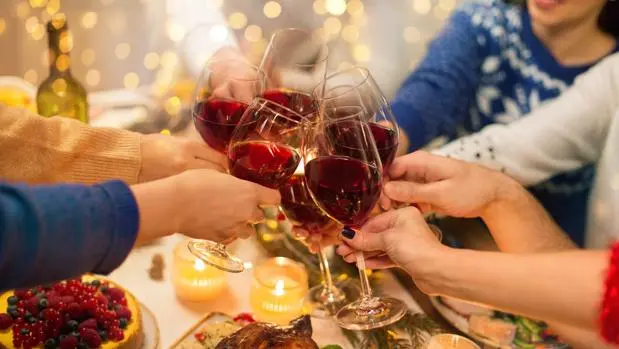Contents
What to do when they insist on drinking alcohol and you don’t want to
Psychology

Christmas brings with it a festive air that translates into parties, dinners and a thousand social gatherings, in which alcohol plays a fundamental role. Many times it is difficult for us to conceive one of these celebrations without a glass of wine in hand. We meet, drink, laugh and have a great time.
The problem comes when, for whatever reason, we don’t feel like drinking alcohol. So we must face infinite comments and reproaches, because many do not understand how we can go to one of these celebrations without consuming spirits. “Come on, don’t be boring” or “for a drink nothing happens” are some of the phrases that we will be forced to answer and confront in order not to end up drinking alcohol without feeling like it, just because we feel compelled.
“There is a highly culturally reinforced association between alcohol and celebrationWe can hardly imagine a party without alcoholic beverages ”, comments Mª Carmen Soliveres, an expert psychologist in addictions and director of the Health Psychology and Medicine unit at the Vithas Medimar Hospital (Alicante). The psychologist Héctor Galván Flórez, clinical director of the Madrid Institute of Psychology, points out that this association was born from our childhood: «There is an area of our brain, the hippocampus, that stores the emotions associated with a situation. If from a very young age at Christmas time the emotion produced by being the whole family in a festive and pleasant atmosphere was associated with consuming alcohol, it is an association that is very powerful ».
If we go to a party, or a dinner, and we do not want to consume alcohol, in order to avoid the “social pressure” that those around us can exert so that we end up drinking, both specialists recommend using a “broken record” technique. “We must choose a phrase with which we feel comfortable, such as” I don’t feel like it, thank you “or” Not now, thank you “and repeat it every time they ask us,” says the expert Soliveres. “You can also make some kind of joke, like” This year I’m very dull, “say it several times, and in the end you end up changing the subject,” says psychologist Galván Flórez.
Social pressure among young people
Clinical psychologist Héctor Galván explains that alcohol consumption, especially in youth, has a psychological effect that can help young people to feel your position strengthened and even feel “empowered.”
For her part, the psychologist Mª Carmen Soliveres explains how, although the pressure to drink can affect any age, the youngest are the most prone to it. «There is certain reluctance to accept someone who does not want to “celebrate”For this reason, when we are younger, it is more important for us to be accepted in a group of equals, and it is more difficult to maintain the ‘no’ ”, he says.
«It can even happen within the family», says Galván and explains: «It is usual, or at least it was, to give as a connotation of grace to the fact that the child was given a little champagne, something anecdotal for children. adults but the child lives with a lot of meaning. He is already beginning to enter the group of adults, and he is accepted as an equal, so he is very reinforcing ».
Both advise against making excuses, since, as Mª Carmen Soliveres explains, this “can lead to a more uncomfortable situation.” Héctor Galván, for his part, recalls that, even if someone is pressured to drink at the beginning, it is something that “on the third occasion that occurs it is already integrated as normal”, as well as explaining that this is, little by little, a more normalized situation , since every time «it is more it’s common to meet people who don’t drink alcohol ”and“ there is not as much pressure as a few years ago ”.
The expert gives alternatives to go to a party and not consume alcoholic beverages. Comment that they exist wide variety of non-alcoholic cocktails based on juices and fruits, which are a “more special option.” It thus recommends, when it comes to dinner or party, “be clear about the alternatives to alcohol”, as well as avoid improvising, since “improvisation can facilitate social pressure to take effect and end up accepting offers of alcohol.”
Three keys
If we do not want to be abstainers during the holidays, but we do not want alcohol consumption to get out of hand, the psychologist Héctor Galvan dto three guidelines to have control when drinking. In the first place, he recommends not spending the entire evening with a glass or glass in hand: “We can have a drink, leave it on the table, and take it again, but not stay with the glass all the time.” The second key is to intersperse the consumption of alcoholic beverages with non-alcoholic beverages, in order to spread the intake more space. Finally, he also recommends spacing the time between one drink and another progressively: “For example, if you start with a glass of wine every half hour, then every hour and a half”.
The expert explains that the effect that alcohol has on our body is cumulative, and “although the brain has the sensation that it is linear”, it is exponential, so if we space out the consumption, “the body will process it much better.”









